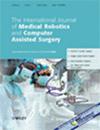A Review on the Current Research Status of Key Areas in Wireless Capsule Endoscopy
Abstract
Background
Wireless Capsule Endoscopy (WCE) is one of the most advanced medical instruments, which can be used for non-invasive imaging detection of the digestive tract by patients taking microcapsules orally. This advanced technology enables medical professionals to evaluate the abnormal situations in the gastrointestinal tract efficiently, analyse the potential problems strictly, discuss the diagnosis and evaluation comprehensively, and make well-founded treatment decisions.
Methods
A scoping review was undertaken, gathering the most relevant sources, utilising a detailed literature search of medical and academic databases including EMBASE, PubMed, Cochrane, IEEE, Google Scholar, and the Google search engine.
Results
Of the 39 articles reviewed, 12 focused on the mechanical structure of WCE, 17 on intestinal lesion detection, and 10 on intestinal 3D reconstruction techniques. We conducted a thorough analysis of the active mechanical structures specifically designed to meet physiological demands and adapt to the dynamic gastrointestinal environment. Furthermore, we performed a comprehensive comparison and evaluation of various detection algorithms, discussing the characteristics of relevant datasets that significantly impact the diagnostic performance of WCE technologies. Lastly, we reviewed the current state and progress of 3D reconstruction techniques.
Conclusions
WCE can greatly improve the defects of current gastrointestinal examination technology, reduce patient pain, and enrich medical means. However, a large number of software and hardware problems need to be solved before being applied to clinical practice.

 求助内容:
求助内容: 应助结果提醒方式:
应助结果提醒方式:


